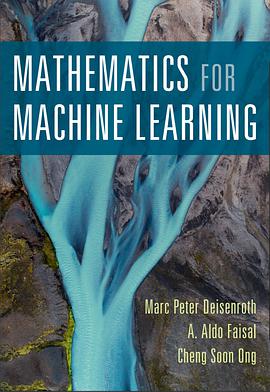Mathematics for Machine Learning
豆瓣
Marc Peter Deisenroth / A. Aldo Faisal …
简介
https://mml-book.github.io/
::This self-contained textbook introduces all the relevant mathematical concepts needed to understand and use machine learning methods, with a minimum of prerequisites. Topics include linear algebra, analytic geometry, matrix decompositions, vector calculus, optimization, probability and statistics::
The fundamental mathematical tools needed to understand machine learning include linear algebra, analytic geometry, matrix decompositions, vector calculus, optimization, probability and statistics. These topics are traditionally taught in disparate courses, making it hard for data science or computer science students, or professionals, to efficiently learn the mathematics. This self-contained textbook bridges the gap between mathematical and machine learning texts, introducing the mathematical concepts with a minimum of prerequisites. It uses these concepts to derive four central machine learning methods: linear regression, principal component analysis, Gaussian mixture models and support vector machines. For students and others with a mathematical background, these derivations provide a starting point to machine learning texts. For those learning the mathematics for the first time, the methods help build intuition and practical experience with applying mathematical concepts. Every chapter includes worked examples and exercises to test understanding. Programming tutorials are offered on the book's web site.
contents
Part I: Mathematical Foundations
Introduction and Motivation
Linear Algebra
Analytic Geometry
Matrix Decompositions
Vector Calculus
Probability and Distribution
Continuous Optimization
Part II: Central Machine Learning Problems
When Models Meet Data
Linear Regression
Dimensionality Reduction with Principal Component Analysis
Density Estimation with Gaussian Mixture Models
Classification with Support Vector Machines